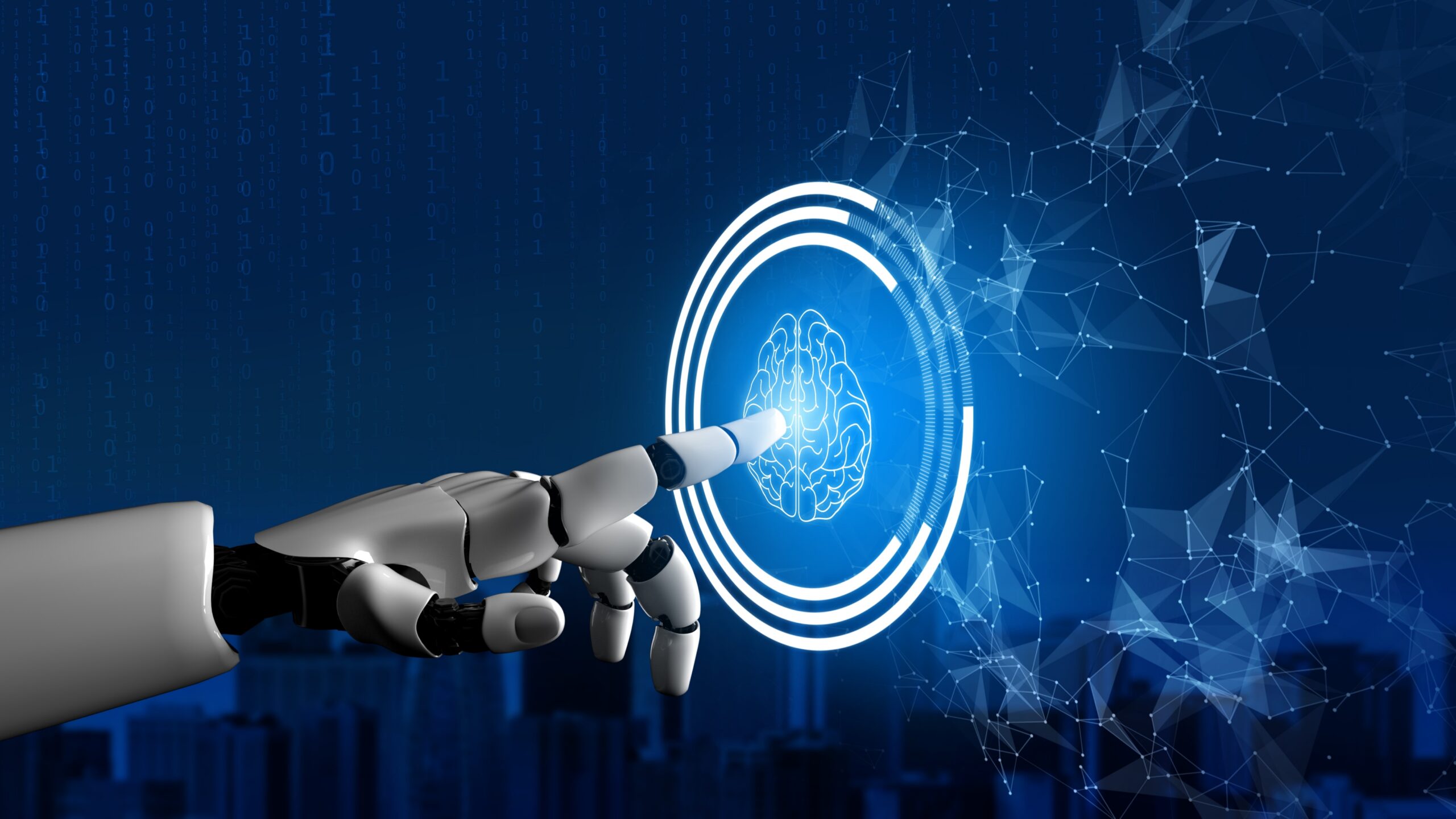AI technology may sound like science fiction, but it is already transforming the business world, with these emerging technologies advancing at a rapid pace.
Consequently, organizations that ignore AI’s transformative potential risk falling behind competitors who are already using it to streamline operations, enhance customer experiences, and drive innovation.
In this article, we explore AI technology’s key components, from machine learning to natural language processing, and show how these innovations are reshaping business sectors. We highlight real-world applications in healthcare, finance, transportation, and education, and reveal how AI is transforming the future of work.
The Key Components of Artificial Intelligence (AI)
Artificial Intelligence (AI) is revolutionizing the way businesses operate, thanks to its ability to analyze massive amounts of data, identify patterns, and make intelligent decisions. Three key components of AI are at the forefront of this digital transformation – Machine Learning, Natural Language Processing (NLP), and Computer Vision.
Machine Learning
Machine Learning allows computers to learn from data without explicit programming. It includes several types of machine learning, such as:
- Supervised learning: AI is trained on labelled data. Used in applications like spam email detection.
- Unsupervised learning: Artificial Intelligence identifies patterns in unlabeled data. Used for tasks like customer segmentation.
- Reinforcement learning: AI learns through trial and error. Used in applications like robotics and gaming.
- Deep learning: Powered by technology like neural networks, deep learning is focused on learning to process data in the same way as the human brain.
Natural Language Processing (NLP)
Natural Language Processing (NLP) allows AI to understand, interpret, and generate human language. This enables the development of chatbots and virtual assistants that can communicate with customers naturally. Generative AI in Natural Language Processing also enables machines to generate human-like text or speech.
Sentiment analysis, powered by NLP, helps businesses gauge customer opinions from social media and reviews. NLP also facilitates content creation, such as generating reports and summaries in Power BI.
Computer Vision and Image Recognition
ChatGPT said:
How AI Systems are Driving Change in Different Business Sectors
Artificial Intelligence is driving digital transformation across industries, from healthcare and finance to transportation and education—revolutionizing how businesses operate and deliver value to customers.
Healthcare Industry
In the healthcare industry, AI is enabling personalized treatment plans and accelerating drug discovery. By analyzing vast amounts of patient data, algorithms can identify patterns and predict the most effective treatments for individual patients, ultimately leading to better outcomes and reduced healthcare costs.
In addition, computer vision technology also helps with early disease detection, allowing doctors to identify tumors and illnesses in their earliest stages.
Finance Industry
Artificial Intelligence is also transforming the finance industry by enhancing fraud detection and risk assessment. Meanwhile, machine learning algorithms can analyze transaction data in real time, identifying suspicious activities and preventing financial crimes. This helps financial institutions protect their customers and maintain trust.
Additionally, AI is used for investment strategies, allowing businesses to analyze market data and make well-informed investment decisions. This can lead to higher returns and reduced risk for investors. As AI continues to advance, it will likely reshape the finance industry, making it more efficient, secure, and customer centric.
Transportation and Logistics
In the transportation and logistics industry, AI is paving the way for autonomous vehicles and smart traffic management. Self-driving cars and trucks, powered by AI, have the potential to reduce accidents, improve fuel efficiency, and optimize route planning.
Additionally, AI-powered traffic management systems can analyze real-time data from sensors and cameras, adjusting traffic lights and redirecting vehicles to reduce congestion.
In logistics, AI is being used for route optimization and supply chain efficiency, predicting demand and ensuring that goods are delivered quickly and cost-effectively. This digital transformation in transportation and logistics will likely lead to safer, cleaner, and more efficient mobility.
Education and Training
AI-powered educational platforms can analyze student data, identify strengths and weaknesses and adapt the curriculum to meet individual needs, thereby improving learning outcomes. Moreover, assessment and feedback use AI to grade assignments and provide instant responses to students, freeing teachers to focus on more complex tasks.
As AI continues to advance, it will likely reshape the education landscape, making learning more accessible, engaging, and effective.
AI Development and The Future of Work
As technology advances, AI digital solutions are transforming human work. Although AI may automate some jobs, it will also create new roles. To thrive in the AI-driven economy, workers must reskill and upskill to collaborate effectively with AI systems.
In the future, AI’s computing power will automate repetitive tasks, displacing some jobs. At the same time, it will create new roles that rely on human skills such as creativity, empathy, and critical thinking. Workers will collaborate with AI, using its capabilities to enhance their performance.
Despite concerns about privacy and responsible AI, this technology offers many benefits. For example, AI robots can take over dangerous tasks, reducing risks to human life.
To prepare for the future of work, businesses must train their workforce in digital literacy, data analysis, and AI-powered tools. Equipping employees with these skills fosters a culture of continuous learning and adaptability.
Leveraging AI for Business Growth
Embracing AI’s ability to transform processes is crucial for businesses to remain competitive and drive growth. However, implementing AI can be complex, requiring expertise and strategic planning. Digital solutions offered by Exquitech can help businesses navigate the AI adoption journey and unlock its full potential.
Our AI experts help identify adoption opportunities, develop strategies aligned with your business goals, and provide ongoing implementation support.
Our experts can guide you through the complexities of AI adoption, from data preparation to deployment and monitoring. They can also help address organizational and cultural challenges, providing training and change management support.
Contact us today to drive innovation and boost productivity with AI solutions.


